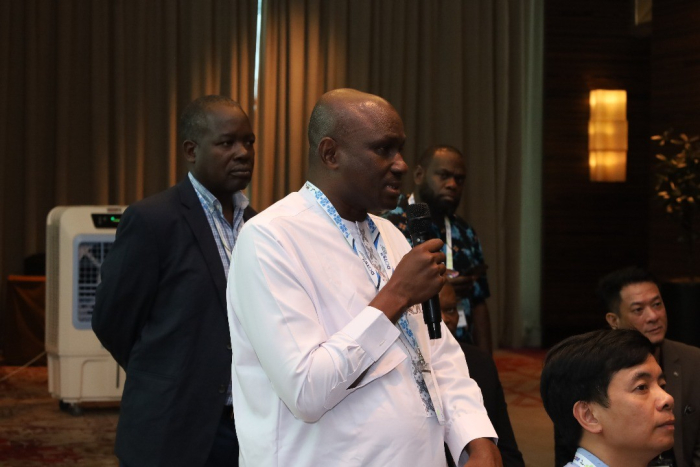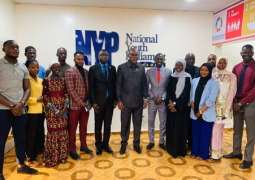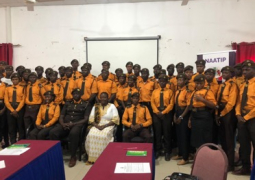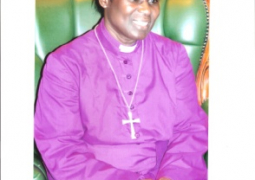
Attending this summit, dubbed the ‘Digital TVET Transformation Summit 2025 or DOTS 25’, is Hon. Ousman Sillah, Secretary General, Sub-Saharan Africa Skills and Apprenticeship Stakeholders Network (SASASNET) together with participants from UNESCO-UNEVOC Centres, TVET stakeholders, ministries, national bodies, associations, unions, industry, academia, regional, multi-lateral and international development partners from Africa, Asia, Europe, the Pacific, the Caribbean, Latin and North America. The event is organized with the support of the German Federal Institute for Vocational Education and Training (BIBB) and funds from the German Federal Ministry of Education and Research (BMBF).
In his official opening address at the Impiana Hotel, in downtown Kuala Lumpur, Dato’ Sri Ibrahim bin Ahmad, Chairman of the University Board of Director, UTHM, stepping in for the Minister of Higher Education, welcomed the distinguished participants to the Global Digital TVET Transformation Summit or DOTS 25 in conjunction with Bridging Initiatives and Learning in TVET (BILT) and the Malaysia TVET Day.
He indicated that it is an honour for him to address the gathering of academicians, development partners, TVET administrators, innovators and practitioners, describing the event as significant as it also coincides with the 46th ASEAN Summit being held in Kuala Lumpur under Malaysian Chairmanship.
He added that this is a manifestation of their utmost commitment and concern in advancing and promoting the TVET as a vital enabler for local and global economic development through a systematic and structured TVET Framework model on international standards.
“As far as Malaysia is concerned, the TVET agenda is being advocated and implemented through various initiatives driven by the federal government and its various agencies, departments and ministries with the cooperation of the state governments and the involvement of industry,” said Dr. Ahmad.
The Board Chairman of UTHM said as technology is reshaping the world, Malaysia stands ready not just to follow the trend but to spearhead the change and eventually become a regional and global TVET trend setter, adding that their prosperity depends on human capital that is educated and trained via various levels within the dynamic TVET ecosystem as the backbone of their industrial transformation and the cornerstone of their modern economic vision.
Dr. Ahmad noted that transformative implementation requires unprecedented coordination, investment and collaboration from all relevant national stakeholders and international partners.
“I call upon industry leaders to move beyond advisory role and become co-creators and co-investors in skills development and I urge our educational institutions to embrace flexibility, specialisation and continuous innovation in the program design and also urge policy makers to breakdown silos, align incentives and make brave decisions that prioritise long-term skill building over short-term metric,” said the UTHM Board Chairman.
“The future of the Malaysian economy, indeed the future of Malaysia itself, will be built by the hands we train today. Let us ensure they are the most skilled, adaptable and innovative hands in the region,” he concluded.
Speaking earlier, Dr. Abdul Rasid bin Abdul Razzaq, Acting Vice Chancellor, UTHM, in his welcoming remarks said they are not only gathered at the summiot to discuss the future of technical and vocational education training in Malaysia but to also chart a transformative path forward, one that aligns with their national aspirations and the dynamic demand for the fourth industrial revolution.
Friedrich Huebler, Head of UNESO-UNEVOC, welcomed the participants to the global digital TVET transformation summit 2025 and thanked the hosts, UTHM and the Malaysian Ministry of Higher Education, and the Malaysian TVET Council for their steadfast commitment to technical and vocational education and training.
He said the digital age is no longer on the distant horizon but is our present reality, adding that as this new era reshapes economies and societies, the imperative is clear that TVET must remain not only relevant but adaptable and future ready.
“At UNESCO-UNEVOC, we believe that TVET holds the key to achieving inclusive and sustainable development which is also the theme of ASEAN Malaysia Chairmanship 2025,” said Mr. Huebler.
The Head of UNESCO-UNEVOC noted that TVET connects people to decent work, builds resilience in communities and fosters innovation but added that a central question that must be confronted is how can TVET systems prepare learners for a world of work that is undergoing rapid transformation.
“The digital transformation of TVET is not just a matter of updating curricula and introducing new tools. It is a profound systemic change impacting on how we teach, how we learn and how we collaborate. And while artificial intelligence is emerging as a game changer,” he said, adding that less than 10% of schools and universities globally have formal guidance on the use of generative.
Mr. Huebler said UNESCO calls for a human-centred approach to AI as it aims to shift the conversation to addressing the inequalities regarding access to knowledge and diverse cultural expressions and to ensure AI does not widen the technological divide within and between countries which remains a formidable barrier.
For his part, Mr. Michael Wiechart, Head of Division, International Advisory Services/Cooperation with Partner Institutions (BIBB), Germany, said at DOTS 2025 the shared conviction is highlight.
He said TVET needs digital transformation. This is why we address policies for the digital transformation and integration of AI in TVET in the bridging event during this summit as the urgency is clear, adding that in less than 3 years more than 70% of jobs will demand digital competencies with AI alone expected to impact on 86% of global occupations.
“We know no country can address global transformation in isolation. Therefore, we turn to Asia and other regions because meaningful responses must be rooted in international collaboration toward a global TVET agenda. He said it is in this spirit than the German Ministry of Education has launched the excellence in TVET initiative.
Following the opening session and during the course of the first two days, the participants were engaged in discussions at the plenary, panel and parallel sessions on the presentations dealing with critical topics related to the theme ‘Policies for the digital transformation and integration of AI in TVET’.
Hon. Sillah contributed in all the discussions presenting the SASASNET position on the relevance of skills and apprenticeship in building capacities or skilled workforce, creating employment, addressing socio-economic inequalities, and advancing development. He welcomed the digital transformation and AI in TVET but also added that these technological innovations should be embraced as tools that come to complement the human factor but no to replace it as an alternative.
The two days of interactive engagements at the UNESCO-UNEVOC Digital Transformation Summit 2025 or DOTS 25 in Kuala Lumpur, characterised by insightful and instructive contributions from participants coming from all over the world, have generated conclusions that will add value to the national. Regional and international efforts geared towards advancing the global skills and apprenticeship development agenda.
The UNESCO-UNEVOC Bridge Building event ended on Thursday, 29 May, while the delegates are scheduled for on-site study visits to interact with local TVET practitioners in city of Johor on Friday, 30 May, 2025.
Read Other Articles In National News





